Understanding What Are Competitive Keywords


Every day, businesses fight for the spotlight in search results. Some keywords are so sought after that they draw over 1,000 searches per month and still leave most brands struggling to break into the top rankings. Most expect the secret is all about packing in these power words everywhere. The real surprise is that outsmarting the competition means understanding user intent and building real authority, not just chasing the most popular terms.
Table of Contents
- Defining Competitive Keywords And Their Role In SEO
- Exploring The Importance Of Competitive Keywords In Digital Marketing
- The Mechanics Of Competitive Keywords And Search Engines
- Identifying And Analyzing Competitive Keywords For Your Business
Quick Summary
| Takeaway | Explanation |
|---|---|
| Understand competitive keywords' role in SEO | Competitive keywords help organizations improve search engine rankings and attract targeted traffic. |
| Focus on user intent and content quality | Successful strategies go beyond keywords; they involve creating value-driven content that aligns with user needs. |
| Employ continuous monitoring and adaptation | Digital landscapes change rapidly; stay agile by reassessing keyword strategies regularly to maintain relevance. |
| Analyze keyword performance metrics | Thorough analysis of search intent and engagement patterns is crucial for informed content strategies. |
| Balance quantitative and qualitative factors | Effective optimization requires a mix of numerical data and an understanding of user experience and content relevance. |
Defining Competitive Keywords and Their Role in SEO
Competitive keywords represent strategic search terms that multiple businesses target simultaneously, creating a high-stakes digital battleground for online visibility. Understanding these keywords is crucial for organizations seeking to improve their search engine rankings and attract targeted web traffic.
What Makes a Keyword Competitive
A competitive keyword is characterized by several key attributes that determine its strategic value. High search volume, significant commercial intent, and substantial difficulty in ranking are primary indicators. According to Grand Valley State University's CMS Resource Guide, these keywords are essential indicators for search engines to understand webpage content and relevance.
Competitive keywords typically exhibit these characteristics:
Below is a table summarizing the primary characteristics that define a competitive keyword, providing a quick-reference guide for understanding their impact in SEO.
| Characteristic | Description |
|---|---|
| High Search Volume | Typically receives over 1,000 searches per month |
| Commercial or Transactional Intent | Indicates users are likely to make a purchase or take action |
| Traffic Generation Potential | Attracts significant website visits if ranked highly |
| Ranking Difficulty | Challenging to rank for due to intense competition |
| Strategic Value | Essential for business growth and online visibility |
![]()
- High monthly search volume (typically over 1,000 searches)
- Strong commercial or transactional intent
- Significant potential for driving website traffic
- Challenging ranking difficulty on search engine results pages
Strategic Importance in SEO
For digital marketers and businesses, competitive keywords represent opportunities to capture audience attention in crowded online spaces. They require sophisticated strategies that go beyond basic keyword insertion. Successful optimization involves understanding user intent, creating high-quality content, and developing comprehensive topical authority.
The process of identifying and targeting competitive keywords involves comprehensive research, analyzing competitor strategies, and developing content that provides unique value. Businesses must evaluate not just the keyword's popularity, but its alignment with their specific audience needs and brand positioning.
Effective competitive keyword strategies demand continuous monitoring and adaptation. Search landscapes evolve rapidly, with user behaviors and search algorithms changing continuously. Marketers must remain agile, regularly reassessing their keyword selections and content approaches to maintain search engine visibility and relevance.
Exploring the Importance of Competitive Keywords in Digital Marketing
Competitive keywords serve as critical navigational tools in the complex digital marketing landscape, enabling businesses to connect with their target audience precisely when potential customers are seeking specific solutions or information.
Bridging Business and Consumer Intentions
In digital marketing, competitive keywords function as strategic communication channels between businesses and their potential customers. According to University of Southern California's Digital Marketing Insights, effective keyword usage is crucial for enhancing a business's visibility in search engine results and connecting with consumers actively searching for related products or services.
The strategic significance of competitive keywords encompasses several fundamental aspects:
- Direct connection with audience search behaviors
- Precise targeting of consumer intent
- Enhanced visibility in digital marketing channels
- Opportunity to outperform market competitors
Driving Marketing Performance and Visibility
Competitive keywords represent more than simple search terms; they are sophisticated marketing instruments that translate user intentions into measurable business opportunities. By understanding and leveraging these keywords, organizations can develop targeted content strategies that resonate with specific audience segments.
The sophisticated approach to competitive keywords involves comprehensive analysis of market dynamics, user search patterns, and competitive landscapes. Businesses must continuously evaluate keyword performance, understanding that digital marketing environments are constantly evolving. This requires ongoing research, performance tracking, and adaptive strategy development.
Successful implementation of competitive keywords demands a holistic approach that integrates technical search engine optimization with creative content development. Marketers must balance quantitative metrics like search volume and ranking difficulty with qualitative understanding of user experience and content relevance.
The Mechanics of Competitive Keywords and Search Engines
Search engines utilize sophisticated algorithms to interpret and rank web content, transforming competitive keywords into powerful digital communication tools that connect businesses with potential audiences across complex online ecosystems.
Understanding Search Engine Indexing
The process of keyword recognition involves intricate technical mechanisms that go far beyond simple word matching. According to OpenStax's Digital Technology Guide, search engines employ complex crawling and indexing processes that evaluate websites based on multiple interconnected factors.
Key components of search engine keyword mechanics include:
- Algorithmic evaluation of content relevance
- Semantic understanding of keyword context
- Assessment of website authority and credibility
- Matching user search intent with webpage content
Algorithmic Keyword Interpretation
Search engines analyze keywords through multi-dimensional computational frameworks that consider not just individual words, but their relationships, context, and broader topical significance. This advanced approach allows search platforms to distinguish between superficial keyword placement and genuine, valuable content.
The interpretation process involves sophisticated natural language processing techniques that examine factors such as keyword density, semantic relationships, user engagement metrics, and content comprehensiveness. Websites demonstrating deep, authoritative content around specific keyword themes are more likely to achieve higher search rankings.
Successful keyword optimization requires understanding these complex algorithmic dynamics. Marketers must move beyond traditional keyword stuffing strategies, focusing instead on creating comprehensive, contextually rich content that genuinely addresses user queries and provides meaningful information.
Identifying and Analyzing Competitive Keywords for Your Business
Successful keyword identification requires a strategic approach that goes beyond basic search volume metrics, demanding comprehensive analysis of market dynamics, user behaviors, and competitive landscapes.
The following table outlines key considerations during the keyword research process, helping businesses select terms that align with their goals and resources.
| Consideration | Explanation |
|---|---|
| Alignment with Business Objectives | Ensures the keyword supports core company goals |
| Potential Traffic Generation | Evaluates expected website visit impact |
| Relevance to Target Audience | Measures how well the keyword fits user needs and interests |
| Realistic Ranking Potential | Assesses if ranking can be achieved with available resources |
| Competitive Difficulty | Determines how hard it is to outrank existing competitors |
Strategic Keyword Research Foundations
Keyword research represents a nuanced process of understanding audience search behaviors and aligning business content with precise user intentions. According to University of California, Davis's SEO Guide, effective keyword selection involves carefully evaluating multiple critical dimensions that extend far beyond simple search frequency.
Critical considerations during keyword research include:
- Alignment with specific business objectives
- Potential traffic generation capabilities
- Relevance to target audience needs
- Realistic ranking potential
- Competitive difficulty assessment
Advanced Keyword Analysis Techniques
Competitive keyword analysis transforms raw data into strategic insights, enabling businesses to develop targeted content approaches that differentiate them in crowded digital marketplaces. This process requires sophisticated evaluation of keyword performance metrics, understanding semantic relationships, and identifying emerging search trends.
Effective keyword analysis involves examining multiple interconnected factors such as search intent, user engagement patterns, and contextual relevance. Businesses must move beyond surface-level metrics, developing a comprehensive understanding of how specific keywords connect with broader audience needs and market dynamics.
Successful keyword strategies demand continuous monitoring and adaptive approaches. Digital marketing landscapes evolve rapidly, requiring ongoing research, performance tracking, and strategic refinement to maintain competitive positioning and maximize organic search visibility.

Ready to Win with Competitive Keywords? Let AI Turbocharge Your SEO Strategy
If you feel overwhelmed by the constant battle for ranking on highly competitive keywords, you are not alone. As explored above, identifying and optimizing for these powerful search terms is tough, especially when search algorithms and user behaviors shift so quickly. Many business owners and marketers struggle to turn keyword research and content creation into real, sustainable traffic. You want results that are fast, scalable, and cost-effective without getting lost in endless manual work or complicated SEO tools.
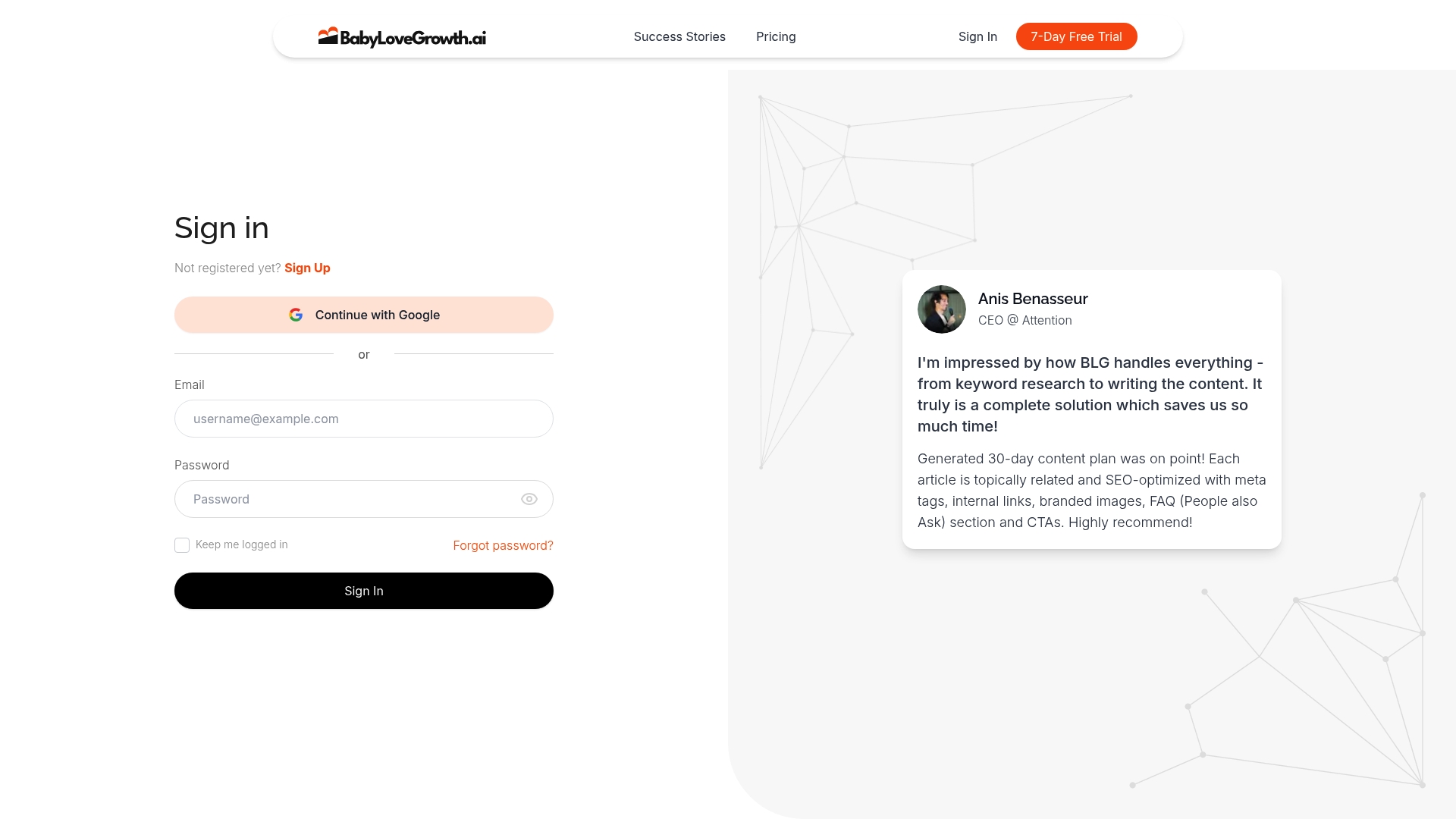
Turn these challenges into growth opportunities with Babylovegrowth.ai. Let AI handle the heavy lifting and deliver a 30-day personalized content plan, automated high-quality articles, and a proven backlinks exchange system that boosts your authority for those competitive keywords. See how we simplify organic growth while helping you stand out in crowded search results. Want proof? Check out our rank-high service breakdown and start your free trial today. Gain an unfair advantage in the competitive keyword race—take control of your SEO strategy on autopilot now.
Frequently Asked Questions
What are competitive keywords in SEO?
Competitive keywords are strategic search terms that multiple businesses target simultaneously, characterized by high search volume, strong commercial intent, and significant difficulty in ranking on search engine results pages.
Why are competitive keywords important for digital marketing?
Competitive keywords enhance visibility in search engine results, allowing businesses to connect with their audience precisely when potential customers are searching for specific solutions or information.
How can I identify competitive keywords for my business?
You can identify competitive keywords through comprehensive research, analyzing market dynamics, user behaviors, and competitive landscapes, focusing on keywords that align with your business objectives and audience needs.
What strategies can I use to optimize for competitive keywords?
Effective optimization strategies involve understanding user intent, creating high-quality content, developing comprehensive topical authority, and continuously monitoring and adapting your keyword selection based on performance and market changes.
Recommended
Smart SEO,
Faster Growth!
Most Read Articles
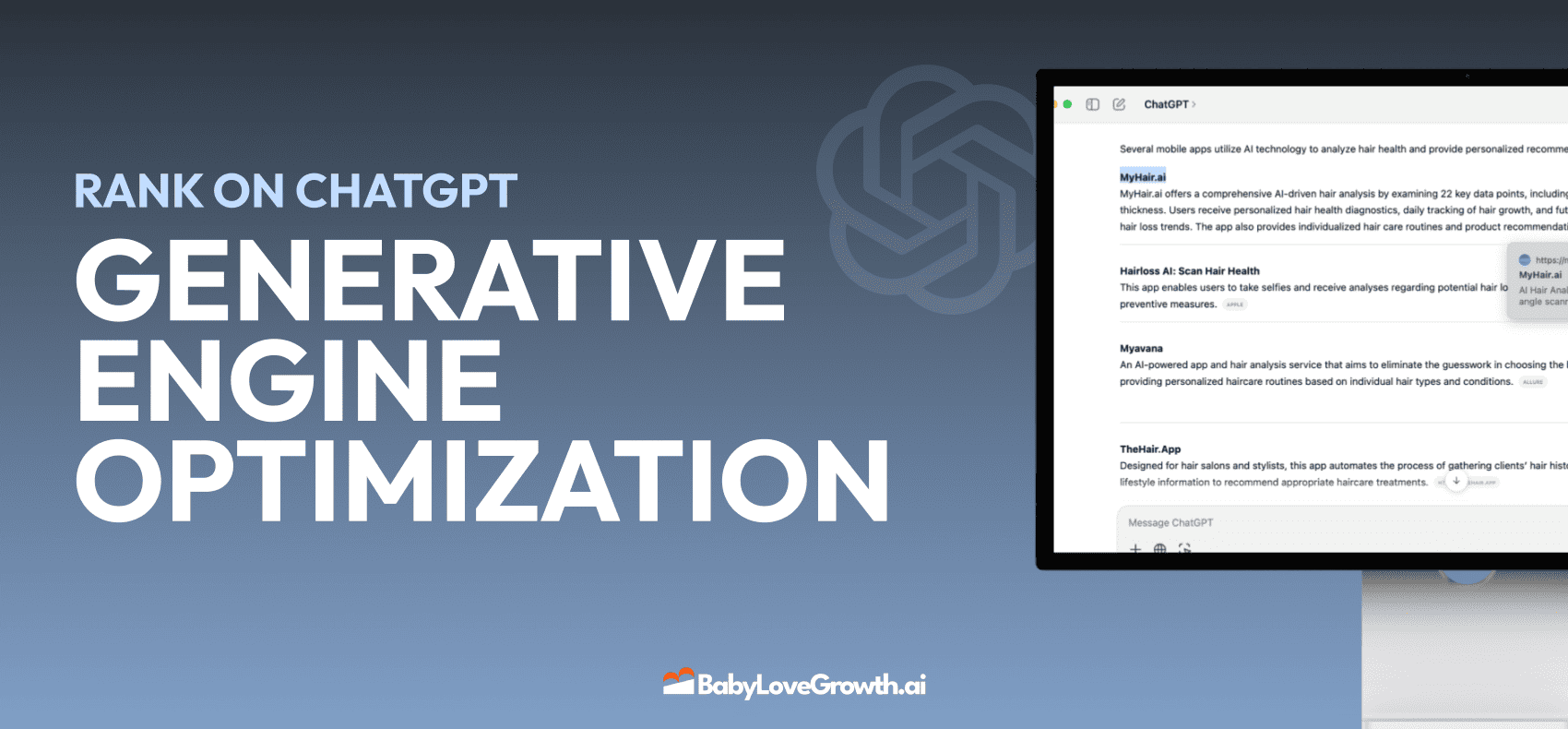
Generative Engine Optimization (GEO)
Learn how Generative Engine Optimization (GEO) helps your content rank in AI search engines like ChatGPT and Google AI. This comprehensive guide explains the differences between SEO and GEO, why it matters for your business, and practical steps to implement GEO strategies for better visibility in AI-generated responses.
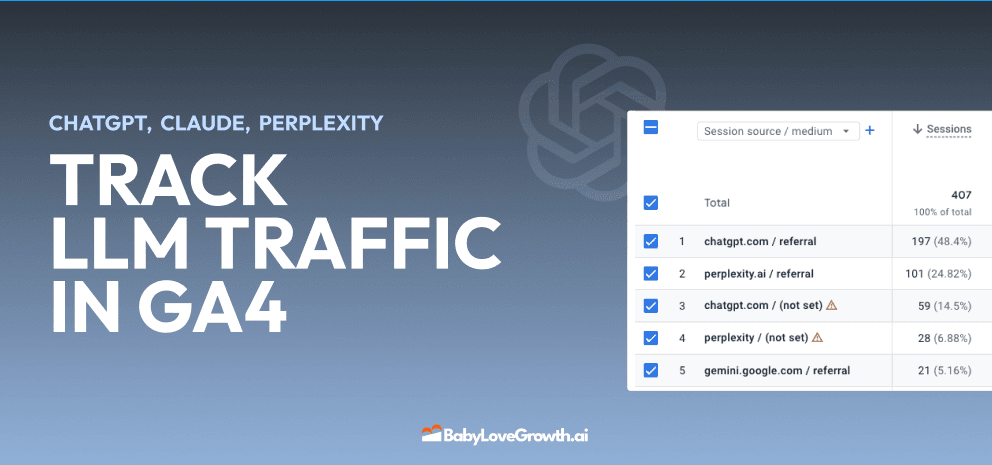
Track LLM Traffic in Google Analytics 4 (GA4)
Learn how to track and analyze traffic from AI sources like ChatGPT, Claude, Perplexity, and Google Gemini in Google Analytics 4. This step-by-step guide shows you how to set up custom filters to monitor AI-driven traffic and make data-driven decisions for your content strategy.
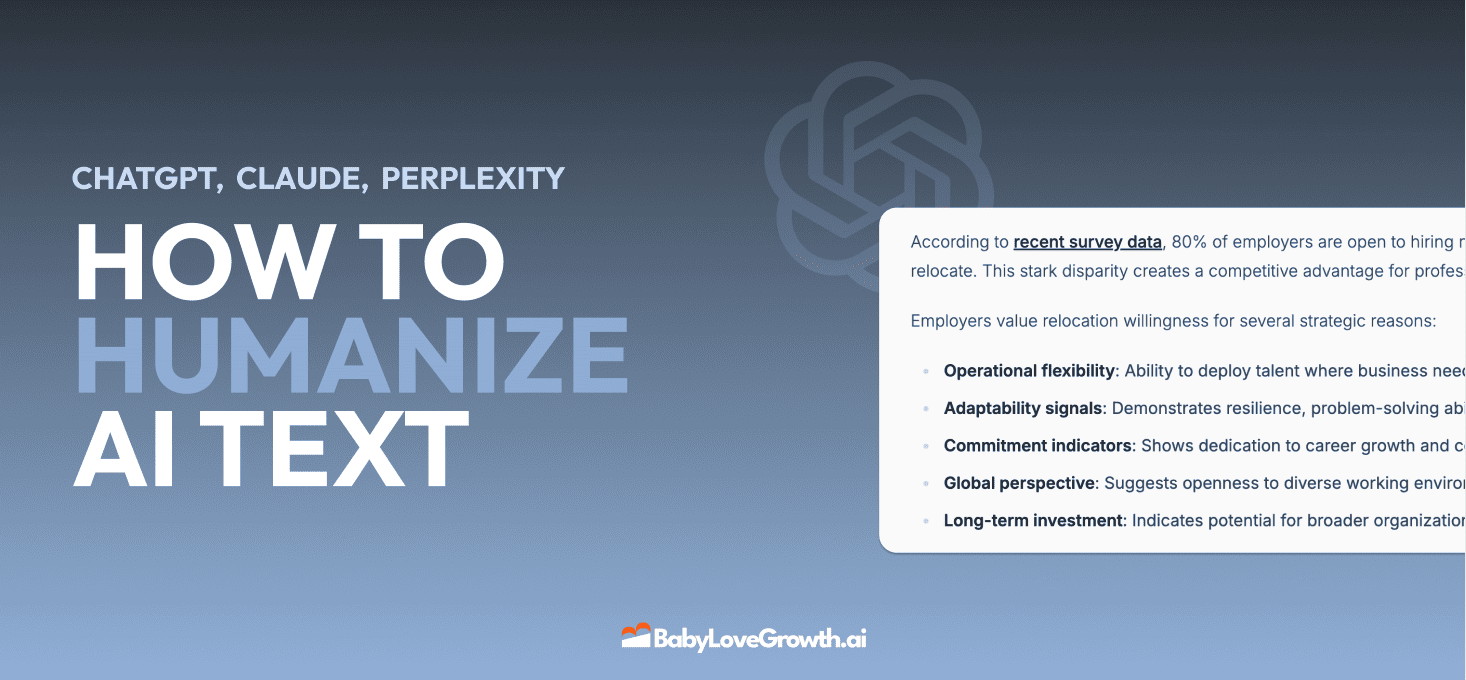
How to Humanize AI Text with Instructions
Learn practical techniques to make AI-generated content sound more natural and human. This guide covers active voice, direct addressing, concise writing, and other proven strategies to transform robotic text into engaging content.
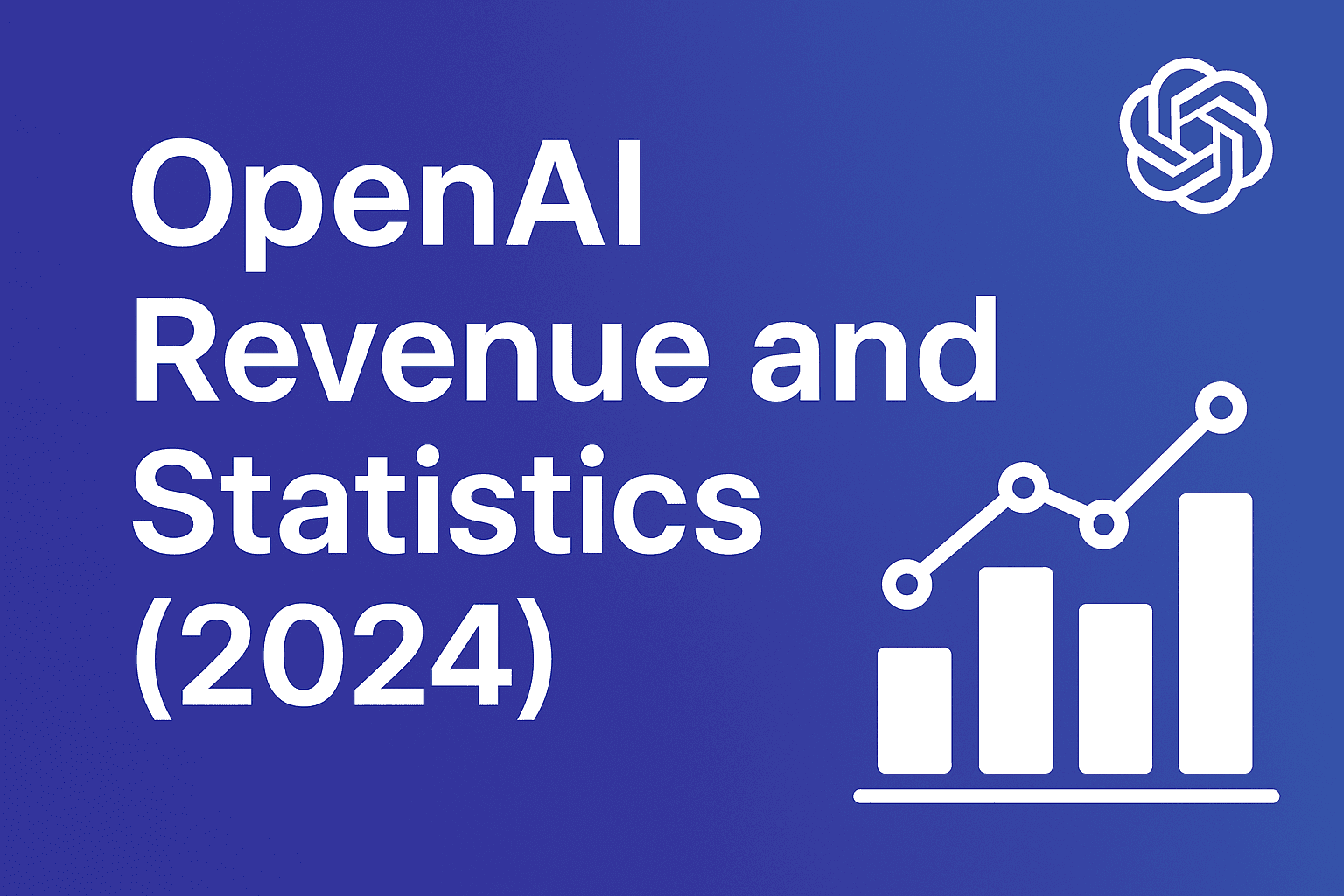
Open AI Revenue and Statistics (2024)
Comprehensive analysis of OpenAI financial performance, user engagement, and market position in 2023. Discover key statistics including $20B valuation, $1B projected revenue, and 100M+ monthly active users.